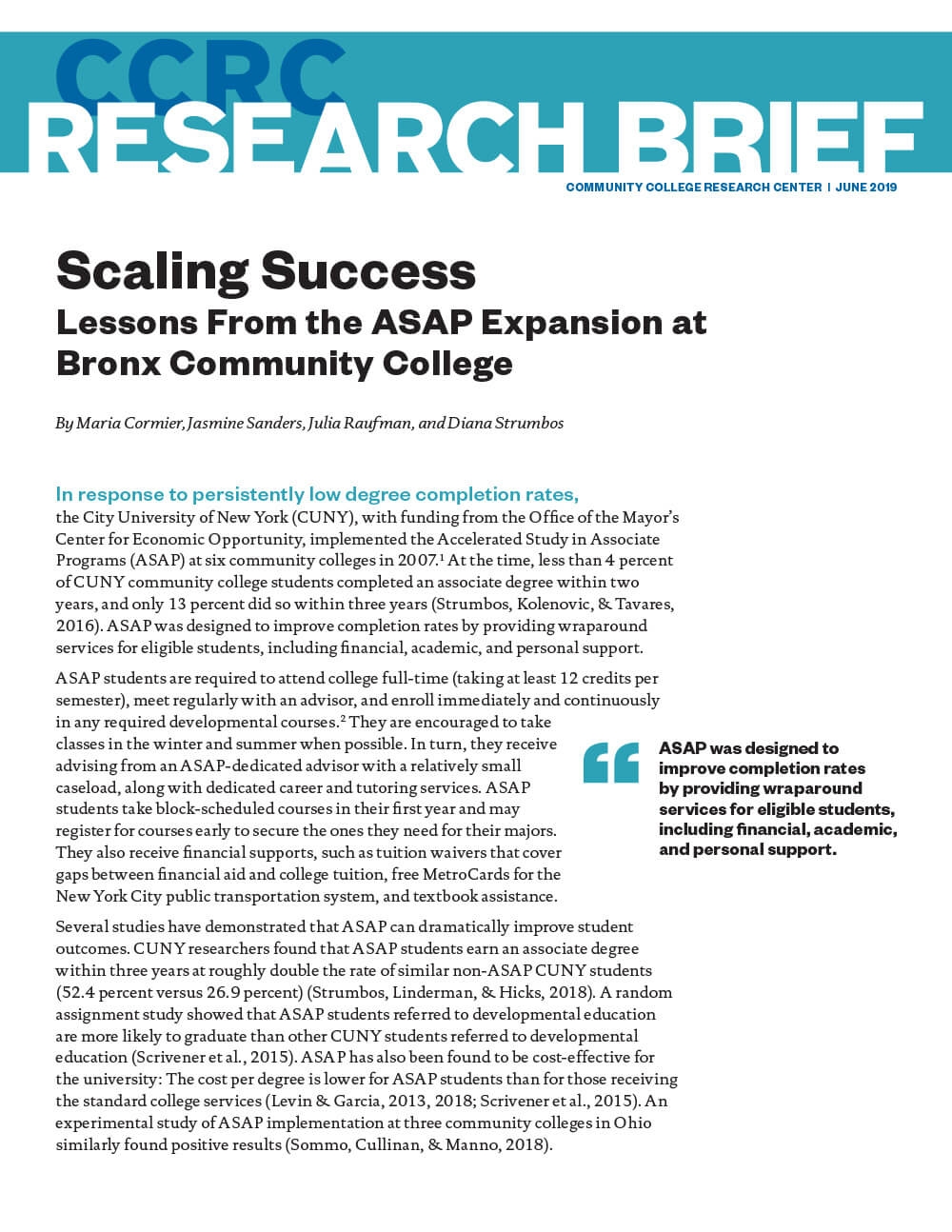
The City University of New York’s (CUNY) Accelerated Study in Associate Programs (ASAP) provides wraparound services for eligible students, including financial, academic, and personal support. First piloted in 2007, ASAP has been shown to substantially increase three-year completion rates at CUNY’s community colleges.
To build on the program’s early success, in 2011 CUNY began an initiative to expand its ASAP enrollment from around 1,300 students to 25,000 students in the 2018–19 academic year. CUNY selected Bronx Community College (BCC) for an especially ambitious project: BCC would become an “ASAP college,” increasing its program enrollment to around 5,000 students, or half of its student population, by 2018–19.
This brief examines the expansion of ASAP and how the program was adapted in the process, using BCC as an illustrative case study. It highlights three implementation priorities underlying the expansion of ASAP at BCC for which adaptations were necessary:
- meeting enrollment targets;
- maintaining the student-advisor relationship component of ASAP; and
- staffing the program at scale.
The brief documents how student recruitment and registration processes, advising and advisor training, and program staffing were adapted to meet these priorities.
